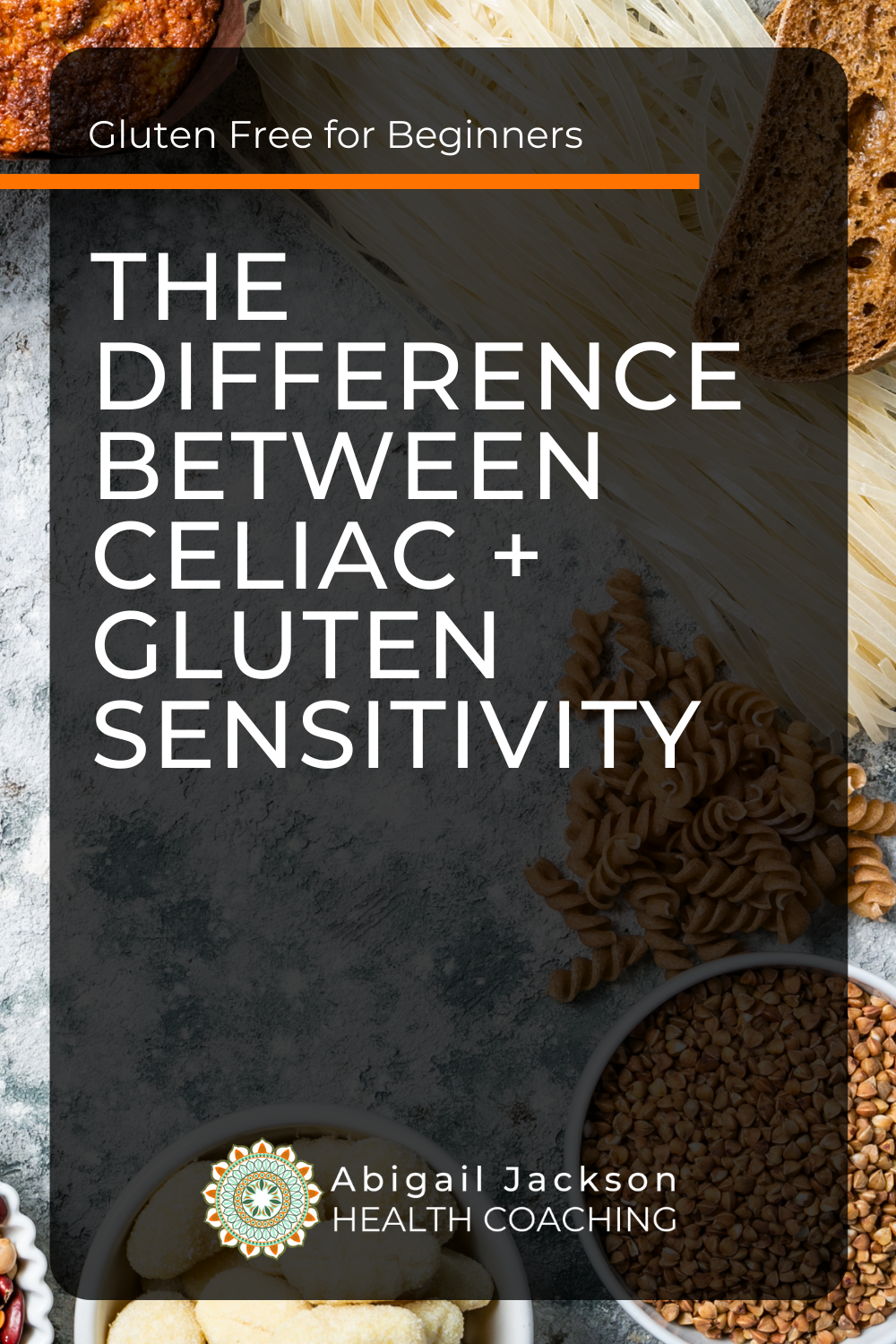AKA How To Explain it to Family Members Who Don't Understand Why You Need to Be Gluten Free
Basically the issue here is mostly one of communication. If they don’t understand why you have to eat the way you do… and you don’t really understand either… you can’t explain it to them and then everybody gets more and more frustrated. (Sometimes to the point of breaking off relationship 🙁 Which is super sad. So I want to help clear up some of the confusion and help YOU understand so you can explain 🙂 )
My family was pretty lucky in the support department… When my sister found out she needed to be GF, we all were on board to help her, even if we didn’t know what we were doing or HOW to help: at least we were willing.
But sometimes other people aren’t so lucky…
For instance, my friend Alisha is gluten sensitive, but she didn’t know for the longest time how to explain it to people. Her mother is also gluten sensitive - to the point where they suspect it might actually be celiac - but she didn’t know how to explain it either.
So both Alisha and her mother were having problems with Alisha’s step-father because he didn’t get it, didn’t care to get it, and was giving them a hard time about it.
It was getting bad enough that Alisha didn’t want to go hang out with them or be at family gatherings because she knew that he was going to be a jerk about it. I never talked personally with Alisha’s mom, but I can only assume it was even worse for her having to live with the man.
And this is a problem I’ve seen in post after post in support groups and talking with GF people… Family members who don’t understand, don’t seem like they care, and who give you a hard time about doing what you need to do to take care of yourself.
Now I’m going to step on some toes here, and it’s ok if you disagree with me, but I’m going to challenge you to consider this perspective for a second:
The majority of advice out there right now on how to deal with difficult people is this: label those difficult people as “toxic” and cut them out of your life. Don’t have anything to do with them and make it hard for them to have anything to do with you.
They say “If they can’t handle me at my worst, they don’t deserve me at my best.”
Right?
Wrong. OH HONEY CHILD, that’s wrong.
I’ve written about this in another post so I’m not going to go on a full rant here, but the gist of it is this: if you decide that person is “toxic” and become super difficult for them to deal with, then what happens if they label you “toxic” back and refuse to deal with you?
You’ve lost a relationship that had no business being lost.
Especially if they’re a close family member. I firmly believe that families should be able to count on each other ESPECIALLY when they don’t agree. That’s the truest test of loyalty: being trustworthy enough to have somebody else’s best interest in mind WHEN YOU AREN’T GETTING ALONG WITH THEM.
It’s easy to be happy with people who agree with you and make you feel good. But if everybody cuts off everybody who doesn’t agree with them, we’ll end up with a fractionated world of little groups of people who totally agree with each other and hate on everybody else.
Anyway, I said I wasn’t going to rant on that here. You say, what’s your point?
My point is that if their only “crime” is being difficult and saying snarky things, cutting them off completely is cruel and unusual punishment.
[Now this is not talking about abusive relationships or situations. If there’s legitimate abuse besides the way they treat you over the way you eat, that’s a pattern and should be addressed with qualified help. I’m challenging you here to not label something as abusive and “toxic” if it’s really just annoying or discouraging to you.]
The only problem I see in those annoying-type situations is one of communication. Maybe you don’t have the words to explain what’s going on and they don’t have the words to explain why they get freaked out or annoyed by the fact that something is going on with you.
In those situations, just a little communication will go a long way to saving a relationship that was, for the most part, beneficial.
My goal with this post is to give you the words you need to talk about what’s going on with you, so you can open a respectful and considerate conversation with these difficult people in your life and bridge the gap.
In order to do that, you need to know three core facts:
- What gluten sensitivity actually is and how to explain it.
- What celiac disease actually is and how to explain it
- What the difference is so you can help educate those people in your life and they can become advocates FOR YOU to other people
You need to know about both conditions, because it doesn’t matter which one you have, somebody is going to get it confused and you need to be able to kindly set them straight.
1) Gluten sensitivity (the short version):
I've written in length about what NCGS is and what it does to the body: click here to read it once you're done with this one>>
Gluten is a protein which breaks down the cell wall of your small intestine (which is only ONE cell thick).
When your small intestine’s wall is broken down, you end up with a condition called “leaky gut.”
When your gut is leaky, undigested particles of food escape into your bloodstream.
When your immune system (which patrols the bloodstream like State Troopers) sees those particles out where they’re not supposed to be, your body mounts an “immune response” (the white blood cells attack anything that’s not labeled “part of my body”).
This immune response causes you to feel sick, get gastrointestinal issues which are sometimes labeled “IBS,” “leaky gut,” or “ulcerative colitis,” and have strange symptoms like skin rashes and discoloration (among MANY other things).
Gluten sensitivity (aka “Non-Celiac Gluten Sensitivity” or NCGS) is something that the medical industry can’t test for so they don’t really consider it a disease. They can only classify it as what it’s NOT (ie, NOT celiac).
2) Celiac disease takes that whole situation a step further.
The beginnings are pretty much the same… gluten breaks apart the intestinal lining, food gets into the bloodstream, you have an immune response.
But in celiac disease, which is an autoimmune disease (“autoimmune” = immune system attacks and destroys cells belonging to the body), the immune system isn’t just targeting the maverick food particles that escaped into the bloodstream.
It starts attacking all the systems of the body that have integrated gluten. (Gluten is a protein; the body needs proteins to regenerate cells; gluten gets integrated into other systems; the immune system goes on a Great White Gluten Hunt.)
The immune system is like the Marines of the body. When they go after a bad guy, they do it right and they don’t rest until they’ve tracked him down. In an autoimmune disease, they’re so set on getting rid of the bad guy, they attack the “civilian” systems he’s hiding in and you end up with “blue-on-blue” or “friendly fire.” (Wrote about this in a different post too, click here if you want to read it>>)
3) The reason there’s so much confusion between celiac and NCGS is because they’re really very similar for all practical intents and purposes.
Both conditions require a gluten free diet and lifestyle.
Both conditions have a very narrow set of common symptoms in the people who have them, plus more and more seemingly unrelated and bizarre symptoms… everybody has their own unique way it shows up.
Both conditions have people who react to gluten at different intensity levels.
4) The differences between them:
Celiac is an AUTOimmune disease // NCGS is a healthy immune response (inflammation).
Celiac is connected to specific genetic markers // NCGS doesn’t care who your daddy is
Celiac can be reliably tested for (which is why it’s classified as a disease) // NCGS cannot be reliably tested for (which is why it’s classified as a condition)
Celiac (since it’s testable) is recognized by the medical industry as a legitimate disease (even if most doctors still don’t know it’s a thing) // NCGS (since it’s not testable) has a very love/hate relationship with the medical industry… some doctors see it as legit and serious, some doctors still think it’s a fad and a personal choice unrelated to actual medical necessity.
5) (This one’s a bonus) In order to communicate why this is serious, you have to connect the negative symptoms you experience to your condition.
I’m gonna give you a secret about human nature: people are both good AND bad at the same time.
Your family member who gives you a hard time about the way you have to eat may be doing it because they’re the kind of person who makes jokes when they don’t know how to handle something unfamiliar and you’re getting upset because you see their attempts at humor as rude.
Or they may be freaked out because they care about you and can’t stand that there’s something wrong with you that they can’t understand, and if they can’t understand it they can’t fix it, and so they shut down rather than have to face their failure. (Hint: most men are this way.)
Or they may be sensitive about the way THEY are eating and secretly feeling bad about themselves for being so unhealthy and they’re unhappy that you’ve gone all “health nut” on them because they feel like you’re pointing out everything that’s wrong with the way THEY eat.
Or they may have a good idea of how difficult it is to go gluten free and they’re afraid if you’re doing it, they’re going to have to and they’re resisting YOU doing it in an attempt to keep from having to do it too.
Or it could be something completely different.
Everybody has their own conscious and SUBconscious motivations for the way they act. When you open the conversation with them, they may not tell you the real answer right away because they may not KNOW the real answer.
But I encourage you to
- study this post and the differences/similarities between celiac and NCGS,
- practice explaining it to people who are already sympathetic and will be encouraging while you figure it out, and
- take ownership of your responsibility to take care of yourself no matter what anyone else says so you can continue to do what needs to be done from a place of power rather than defensiveness.
Maybe those people never truly understand. That’s ok. My family members do things I don’t truly understand all the time. But I still love them and care about them and want to be a part of their lives.
Give those “difficult” people the benefit of the doubt. Save a relationship. We need all the support and connection we can, especially right now.
I know there’s a lot more I could say on everything, but I hope that this helps save at least one relationship. If it does, it will be worth it. 🙂

